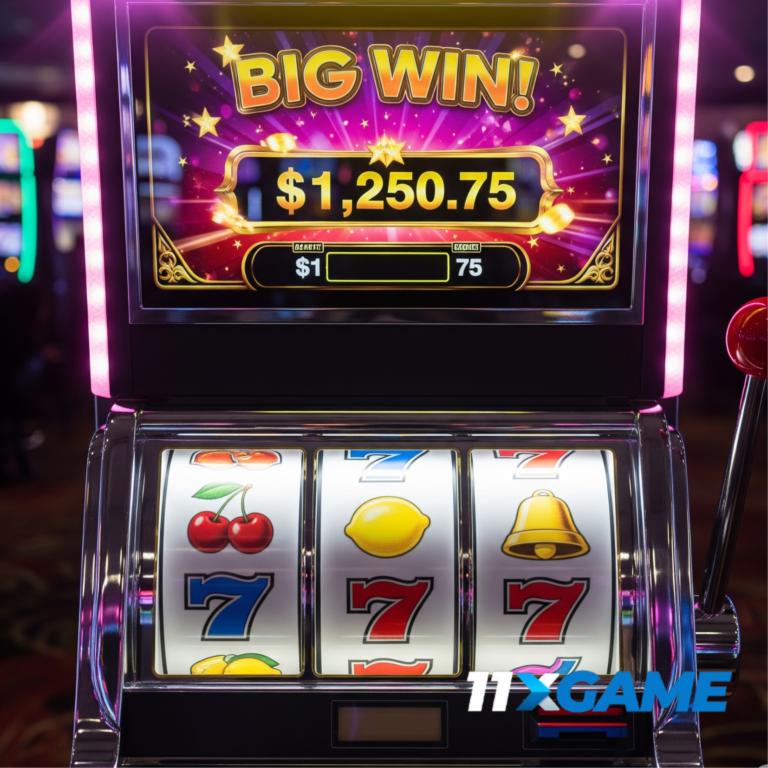Understanding Casino Bankroll Management – Essential Tips for Responsible Play
Casino games can be incredibly fun, entertaining, and thrilling, offering players a mix of strategy, chance, and excitement. However, without proper money management, it’s very easy for players to overspend, losing track of how much they are wagering, which can quickly turn what should be an enjoyable pastime into a source of financial stress and frustration. For this reason, casino bankroll management is considered one of the most essential skills for any player, whether you are just starting out or have years of experience.
Understanding how to manage your bankroll means more than simply setting a limit; it involves learning how to control your spending, make informed decisions about bets, and approach each gaming session with discipline and patience. By mastering these skills, you not only protect your wallet but also increase the enjoyment of each game, giving yourself the ability to play longer, reduce impulsive decisions, and respond more rationally to wins and losses.
In this article, we’ll provide a comprehensive guide on what bankroll management is, why it plays such a crucial role in safe gambling, the most common mistakes that players make, and practical, actionable tips that can help you stay in c
What Is Casino Bankroll Management?
Your bankroll is the total amount of money you are willing to risk while gambling. Bankroll management is the process of setting limits, sizing your bets appropriately, and tracking your results to ensure you do not overspend.
Experts view bankroll management as a form of risk control — just like budgeting for any other activity. The goal is not just to win but to make sure you can keep playing without putting yourself in financial danger.

Why Bankroll Management Matters
Many casual players underestimate how quickly losses can add up. Good bankroll management:
- Prevents overspending: You play within your means.
- Reduces emotional decisions: You are less likely to chase losses.
- Extends your playtime: Smaller, controlled bets mean your bankroll lasts longer.
- Encourages responsible gaming: Helps keep gambling a form of entertainment, not financial risk.
Setting a Realistic Budget
The first step in bankroll management is deciding how much money you can afford to lose. This should be discretionary income — money that won’t affect your bills, rent, or savings.
Once you set your bankroll:
- Divide it into sessions if you plan to gamble multiple times.
- Decide your maximum loss limit per session.
- Never borrow money to gamble — this is a clear sign of risky behavior.
Unit Sizing and Staking Strategies
To avoid losing your bankroll too quickly, professional players use unit sizes — a small percentage of their total bankroll for each bet.
Example:
- If your bankroll is $500 and you choose 2% per bet, you wager $10 each time.
- This approach lets you withstand losing streaks without going broke.
Common Staking Approaches:
- Flat Betting: Bet the same amount each time. Simple and safe.
- Percentage Betting: Adjust bet size based on current bankroll. Flexible and risk-controlled.
- Stop-Loss & Win Goals: Predetermine when to quit if you hit a loss limit or a profit goal.
Common Mistakes in Bankroll Management
Many players lose money not because of the games themselves, but because of poor money management. Understanding these mistakes can save you from unnecessary losses and make gambling a safer, more enjoyable experience.
1. Chasing Losses – One of the most common traps players fall into is increasing their bet size after losing, hoping to quickly win back what they lost. This is often called “tilt” and can spiral out of control, leading to even bigger losses. Instead, disciplined players accept losses as part of the game and stick to their pre-set betting limits.
2. No Set Budget – Gambling without a fixed budget is like driving without a destination. When players use money meant for rent, bills, or groceries, the consequences go far beyond the casino floor. Setting a clear gambling budget before playing keeps your financial obligations safe and ensures you only risk what you can afford to lose.
3. Betting Too Much Per Hand/Spin – High-stakes bets might sound exciting, but they quickly drain your bankroll. Placing too large a bet relative to your total funds leaves no room for natural game variance or losing streaks. Professionals typically bet only 1–2% of their total bankroll per round to stay in the game longer.
4. Ignoring Results – Many players don’t keep track of their wins and losses, which means they never really know how much they are up or down over time. Tracking results helps you stay honest with yourself, spot trends in your play, and make smarter adjustments in future sessions.
5. Playing Too Long – The longer you play without breaks, the more fatigue sets in, affecting your judgment. Tired players are prone to mistakes, such as betting impulsively or ignoring their loss limits. Setting time limits and taking regular breaks keeps your mind sharp and helps you avoid unnecessary risks.
Practical Tips for Safer Play
- Set Time Limits: Know how long you plan to play and stick to it.
- Take Breaks: Short breaks keep you alert and reduce impulsive betting.
- Use Casino Tools: Many online casinos have deposit limits and self-exclusion tools.
- Keep Gambling Fun: Treat it like entertainment, not a way to make money.
- Walk Away When Ahead: Protect your winnings by cashing out instead of continuing to gamble recklessly.
The Psychological Side of Bankroll Management
Managing a bankroll isn’t just about numbers — it’s also about mindset. Emotional control is key:
- Stay calm after losses.
- Don’t let a big win tempt you into riskier bets.
- Accept that losing is part of gambling and focus on staying within limits.
Final Thoughts
Choosing the right casino games can significantly impact both your enjoyment and potential success. Games like blackjack, baccarat, craps, and video poker give you better odds and more control over outcomes, especially when you apply expert strategies. By understanding house edges, mastering optimal strategies, and managing your bankroll carefully, you can maximize your time and reduce unnecessary losses.
The most successful players treat gambling as entertainment first and approach it with patience, discipline, and clear financial boundaries. Avoiding emotional decisions and focusing on value-driven gameplay helps you stay in control and enjoy the experience without regret.
(This article is for informational purposes only. Gambling involves risk. Please bet responsibly. Always check local laws before playing & follow the law.)
FAQ: Bankroll Management and Responsible Play
Q1: How much money should I set aside for gambling?
Only use discretionary income — never risk money meant for essential expenses.
Q2: What percentage of my bankroll should I bet per game?
Most experts recommend 1-2% of your bankroll per bet to avoid going broke too quickly.
Q3: Can bankroll management guarantee profit?
No — it can’t change the odds, but it helps you play responsibly and avoid losing too much too quickly.
“For more educational resources and responsible gaming tips, visit 11xGame to stay informed and safe while enjoying your favorite sports.”






